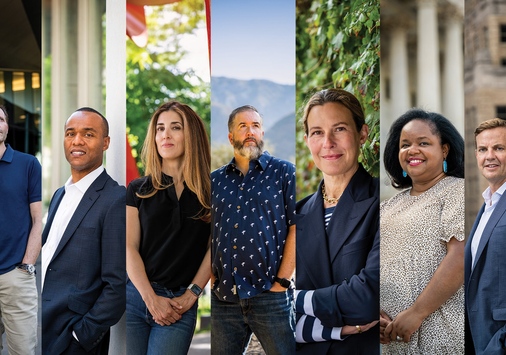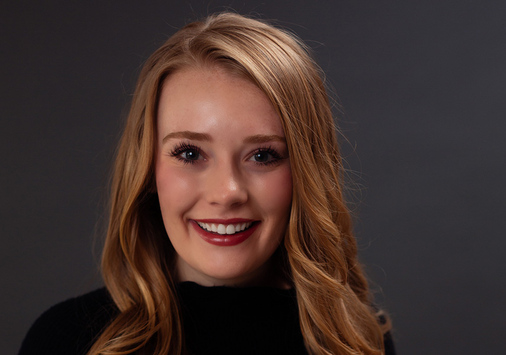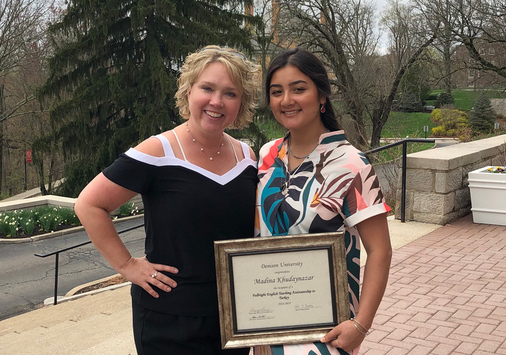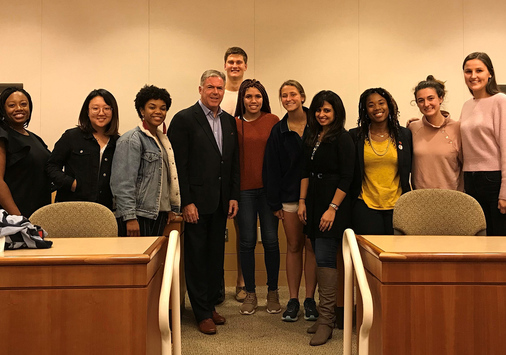Professor of Communication Jeff Kurtz cries “foul” in a rebuttal to an op-ed titled “The Boomer Cult of Self-Realization Is Killing College.”
Excerpted from the Inside Higher Ed opinion piece:
I can say, resolutely, that faculty and staff across the United States are working diligently to realize learning outcomes, equip students with civic and professional skills, and impress the importance of building a portfolio of meaningful experiences that will prepare them to adapt, recalibrate, and, most importantly, competently perform atop a variety of platforms that comprise the ever-shifting worlds of work.
But here’s the thing: If college is to mean something, we simply cannot have the proverbial tail wagging the dog. Do I want my students to make lives of meaningful employment upon graduation? Absolutely. Is that why I teach, or why I think they should embrace the opportunity to throw themselves into labs, studio practicums, or discussion seminars? Again, as Gen-Zers with a penchant for cultural history might say: As if!
(1) Yes, the cost of a college education is high. And it is within the political imaginations of state legislators and the federal government to dedicate more monies to supporting students’ desire to learn (over the last four decades the faucet of state budget lines for higher ed has reduced almost to a drip) and to imagine loan repayment and forgiveness programs that might ensure students do not graduate with crippling debt. (While Mr. Craig leans on Kevin Carey’s analysis of student debt in the New York Times, he fails to foreground what Mr. Carey identifies as the principal — and greatest — source of debt for those who seek advanced education: loans for graduate, professional, and medical school.)
(2) Students may have difficulty launching into their first career after graduation. This is hard to swallow. And what is required is not the disruption of higher education in the glittery ways Mr. Craig would make it anew (“A pathway on every campus! Mobility, equality, fraternity!”), but a genuine disruption of the world of work, one that challenges assumptions about what it means to actually “launch” and presents recent grads with different timelines and structures of support whereby success might be built slowly and intentionally. Such a disruption would go beyond the transactional arrangements that seem the best Mr. Craig can conjure. Because, really, this isn’t rocket science.
College as Mr. Craig would remake it seems like nothing more than a grand check-list of so-called appropriate professional pathways, outcomes, and curated skills employers allegedly need. (I want my certificate!) These so-called reforms seem like little more than earnest bug collecting, students stomping about in search of the latest and greatest digital specimens (skills) to fill their collections while employers wait, eager to unleash their prospective new employees upon tasks that contribute to profit margins.
I suppose, finally, Mr. Craig is serious. So we should say: These emphases are not wrong, but their weight is thoroughly out of proportion. College with Mr. Craig would seem akin to bootcamp with Margaret Thatcher, Joe Rogan, and Charli D’Amelio. Students might learn a purpose of a kind, but they would utterly neglect the richness that comes from examining one’s fundamental assumptions and reflecting on one’s ever-fledging actions. Mr. Craig likens college to a zero-sum game: Either students are duped by the incense of the Boomers’ candles of self-realization or students must put their heads down and curate and collect and refine “real” skills for this digital world.
Missing from this unimaginative sketch is a robust conception of trust: A trust in faculty and staff to continue to collaborate earnestly to imagine and realize curricula of imagination, creativity, challenge, and curiosity; a trust in students both to immerse themselves in refining their civic and professional skills and confronting difficult questions that cannot be quantified or weighted against the lines of a corporate budget; a trust, finally, in the conviction that higher learning must ask more of students than confrontations with digital portfolios and sundry professional toolboxes. At stake, really, are our shared civic fortunes and the ideas that hold us together.














